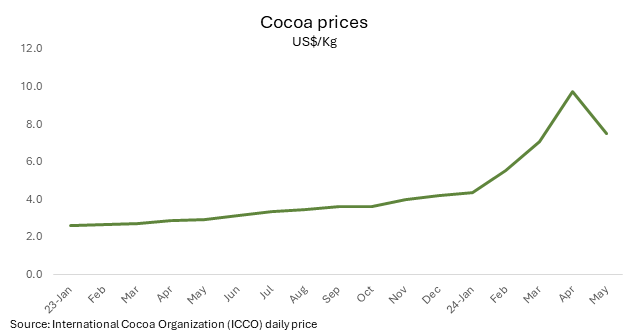
The European Union's natural gas market is navigating a turbulent phase marked by significant price volatility and supply challenges. This volatility is driven by a confluence of geopolitical tensions and the ongoing transition to renewable energy sources. As these dynamics unfold, stakeholders within the market are tasked with strategically maneuvering through the challenges to ensure stability and sustainability.

Geopolitical Tensions and Supply Disruptions
The geopolitical landscape plays a pivotal role in shaping the EU's natural gas market. Tensions with major gas suppliers, coupled with the EU's geopolitical stance, have led to disrupted supply chains. Historically, the EU has been heavily reliant on imports from major players like Russia, but ongoing political tensions have necessitated a reevaluation of these dependencies.
According to Trading Economics, the fluctuating political climate has resulted in a precarious supply situation, causing prices to spike. The dependency on a limited number of suppliers makes the EU vulnerable to external shocks, which can quickly translate into price volatility.
Transition to Renewable Energy
In parallel, the EU is accelerating its transition towards renewable energy sources as part of its broader Green Deal initiative, aiming for carbon neutrality by 2050. This shift is reshaping demand patterns for natural gas. While natural gas is considered a bridge fuel in the transition from coal to greener alternatives, the push for renewables adds complexity to the market dynamics.
The transition involves a strategic pivoting in infrastructure investments. "Investors are now more focused on integrating renewable energy solutions with traditional gas supply systems," says Clara Desmond, an energy analyst at the European Energy Institute. "This shift requires significant capital investment and a clear policy roadmap to ensure energy security during the transition."
Strategic Investments and Risk Mitigation
To mitigate the risks associated with price volatility and supply challenges, the EU market is increasingly turning towards financial instruments like Contracts for Difference (CFDs). CFDs offer a mechanism to hedge against price fluctuations, providing a semblance of stability in an otherwise volatile market.
Market participants are also urged to diversify their energy portfolios. "Diversification in energy sources and supply routes is crucial," notes Jens Meyer, a senior strategist at Sparta Commodities. "This approach not only reduces dependency on a single source but also enhances the resilience of the energy system against shocks."
Infrastructure and Policy Developments
Strategic investments in infrastructure are paramount. The EU is investing in liquefied natural gas (LNG) terminals and pipeline projects to diversify supply routes and enhance energy security. These investments are complemented by policy measures aimed at fostering market integration and cross-border energy cooperation.
Furthermore, regulatory frameworks are being adapted to facilitate the integration of renewable energy and gas networks. The European Commission's forthcoming energy policy reviews are expected to address these integration challenges, providing a framework for sustainable energy transition.
Market Outlook
Looking ahead, the EU natural gas market is poised to continue its evolution amidst these challenges. The interplay between geopolitical factors, renewable energy policies, and market dynamics will dictate the trajectory of the market. It is anticipated that as the EU pushes further towards renewable adoption, natural gas will play a complementary role, necessitating agile strategies to balance supply and demand.
In conclusion, while the EU natural gas market is undeniably in a state of flux, proactive strategies and investments, alongside policy support, are integral to navigating its complexities. As the market adjusts to new realities, stakeholders must remain vigilant and adaptive to ensure energy security and market stability.
With the right mix of policy, infrastructure, and market tools, the EU can effectively manage the volatility and supply challenges that currently characterize its natural gas market. As this journey unfolds, it will serve as a critical case study for energy transition in other parts of the world, underscoring the delicate balance between energy security and environmental sustainability.